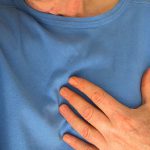 Despite the fact that over 40 million Americans are prescribed and taking cholesterol-lowering medications, heart disease is still the nation’s #1 killer at over 800,000 deaths annually. Knowing your risks and taking the right actions to reduce your risk is the best course of action. Read this list carefully. There’s fresh information below that you may not hear from most physicians. So here are the best ways to prevent heart disease and heart attacks.
Despite the fact that over 40 million Americans are prescribed and taking cholesterol-lowering medications, heart disease is still the nation’s #1 killer at over 800,000 deaths annually. Knowing your risks and taking the right actions to reduce your risk is the best course of action. Read this list carefully. There’s fresh information below that you may not hear from most physicians. So here are the best ways to prevent heart disease and heart attacks.
Blood Test Heart Attack Risk
Find a doctor who will order a complete set of blood tests to determine your risk for heart attack. Those tests not only include lipid testing for total cholesterol, HDL, and LDL, but also less common tests such as the C-Reactive Protein (CRP) test which measures the level of inflammation in your arteries. Your test results can show cholesterol readings that are within the low-risk range, but you can still be at high risk for heart disease because your coronary arterial walls are inflamed. If the inflammation is unaddressed over time, your body can build up more plaque, and eventually cause a coronary artery blockage. The following is a little-known fact well-documented in medical journals: On average, 40-60% of hospital admissions for myocardial infarction (heart attack) include patients with low or normal cholesterol levels.
Control Hypertension or High Blood Pressure (HBP)
More than 50 million people in the U.S. have high blood pressure, the most common heart disease risk factor. Exercise and healthy eating as well as limiting or avoiding salt can improve HBP. Some people may need medications to control blood pressure if those items within your control won’t work. If you snore or feel extremely fatigued all day long, getting tested for sleep apnea may be important. Treating sleep apnea will also help control high blood pressure.
Get a Health Screening
Every year I get a health screening to determine if I have any blockages in my arteries. Using sonic technology (sonogram), licensed health screening providers like LifeLine Screening can easily determine during the test if you have a blockage in your carotid arteries, coronary arteries, or in your extremities which could place you immediately at risk for heart attack or stroke. They can also determine your risk for an aortic aneurysm. Don’t expect your doctor to order this test. Don’t expect your health insurance to pay for it. They should, but they don’t.
Smokers: Sign-up for a Smoking Cessation Program
The chemicals in tobacco damage your blood cells. They also can damage the function and structure of your blood vessels. This damage increases your risk of atherosclerosis, a disease in which a waxy substance called plaque builds up in the arteries. By signing up for a smoking cessation program, you can reduce the risk of a heart attack by more than 50%. Just about every employer offering a high deductible health plan will offer its employees a free or discounted smoking cessation program that works. If you are a smoker, you can immediately reduce your heart disease risk by 50% or more just by quitting smoking. It’s a no-brainer. It’s difficult but just do it.
Prevent Heart Attacks with Diet
The best way to improve your arterial health is to give your body the nutrition it is not getting from a typical American diet. Your arterial inflammation can be dramatically reduced just by including healthy foods in your diet such as multi-colored vegetables, healthy fruits, nuts, complex carbohydrates, and high-quality protein from good sources.
Get More High-Quality Exercise
Everybody already knows that regular exercise will prevent a heart attack, and one type of exercise does not fit all. However, exercise needs to be the frequent enough (3x week), vary the cardio frequency, and include strength training. The most effective plan is to combine cardio (raising the heart above 80 max heart rate) for periods of time in high-intensity interval training (HIIT) with strength training from either machines, free weights or resistance bands. See my other posts in the future for what qualifies as HIIT.
Take the Right Supplements
Every smart health consumer knows that American food from the grocery stores is nutrient depleted unless you are buying expensive organic food. To make up the difference between what’s available and what your body requires, every smart consumer should be taking a high-quality multi-vitamin with vitamin A,C, and E, a vitamin D supplement in the form of D3 Calicalceferol at high dosages of at least 5,000 IU, and others based upon deficiencies in blood tests.
Conclusion: Know Your Test Results and Take the Correct Action
Getting properly tested is the first step. Stop smoking, eat high nutrition foods, exercise frequently with HIIT and strength training, and get on a good vitamin supplement regimen to remove your deficiencies. Notice that nowhere above are cholesterol-lowering medications listed as an action to take.
You have provided some very important information here. I am a former smoker and have been quit for 6 years now. I don’t miss that in the slightest.
Thanks for sharing this interesting post, Hugh.